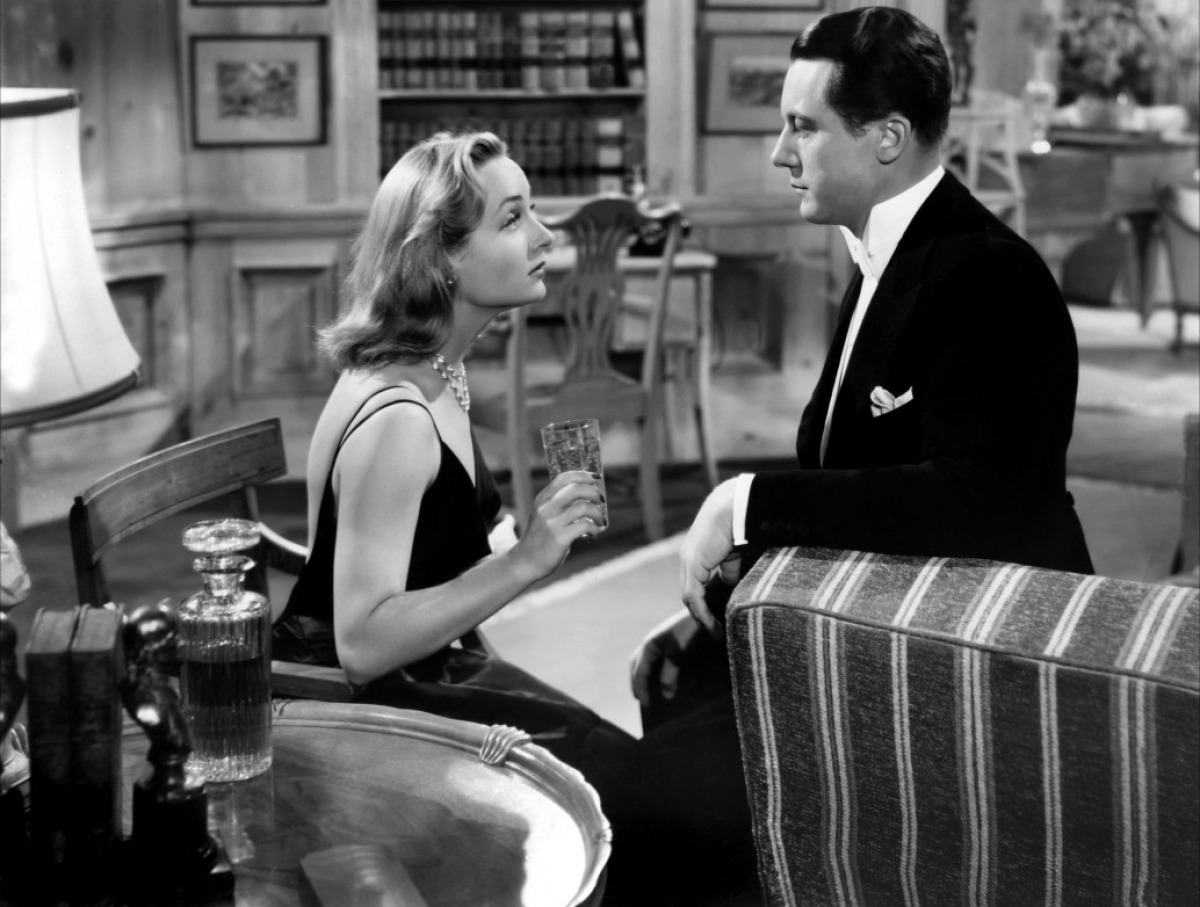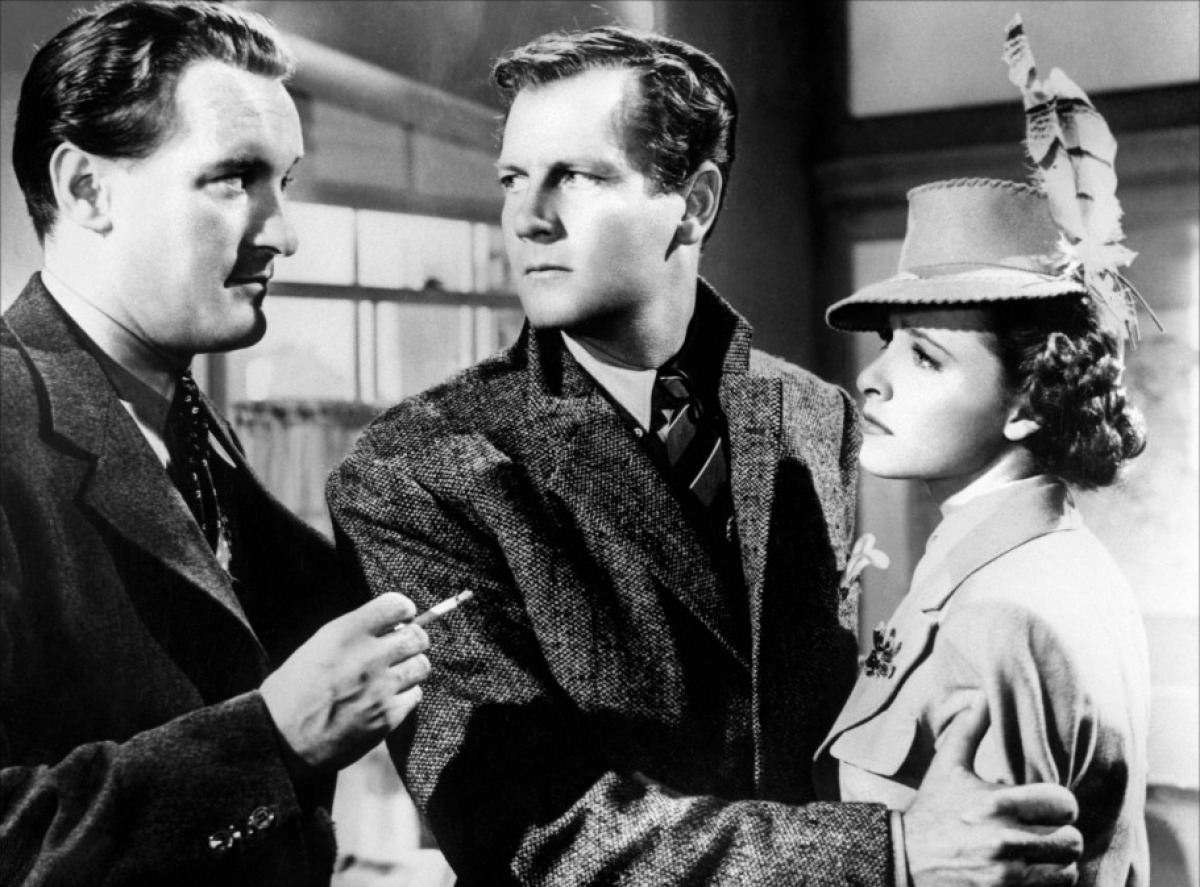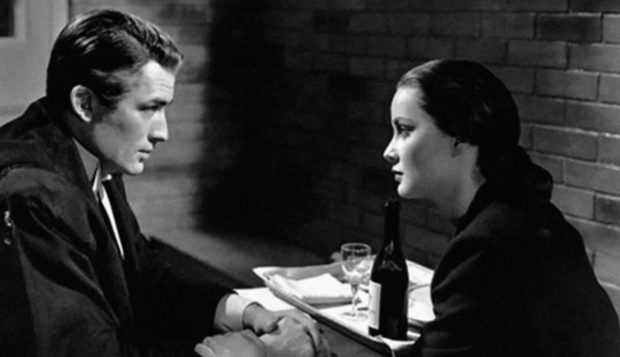
There is a pantheon in the world of film that is reserved only for the most truly memorable artists, the best of the best that includes the likes of John Ford, Akira Kurosawa, Stanley Kubrick and yes, England’s own, Alfred Hitchcock, the self-proclaimed “Master of Suspense”.
His output was quite prolific and of a consistently high quality, despite being initially regarded as a mere purveyor of entertainment, it has since been brought to light, particularly after the writers – and respected film directors themselves – of French magazine Cahiers du Cinema promoted the concept of Hitchcock as an auteur.
He effectively learned his trade from the German master F.W. Murnau (he of Nosferatu fame) and between 1925 and 1939 created a series of impressive and commercially successful features including The Lodger (what he himself regards as his first proper film) and the enormously popular spy romp, The Thirty-Nine Steps.
Hitch was drawn towards the Hollywood system, however, and in 1939 following the release of Jamaica Inn, set off by boat across the Atlantic with his wife, Alma, and his assistant, Joan Harrison to live and work in an entirely new environment, a change that might very well have helped usher in a new period of artistic growth.
The period covering his first decade working within Hollywood was a very busy spell, with thirteen features and two short films to his credit, but more than that, it was a time when the director began to imbue his work with autobiographical elements, take political stances and reach new creative highs.
Here we look at the feature length films of the period and rate them from worst to best, but don’t forget to comment with your own favourite Hitchcock moments from this phase of his career.
13. Rebecca (1940)

Hitch’s first Hollywood feature was directly under the control of his producer David O. Selznick (Gone with the Wind) who had final say on the script, edited the film, re-recorded dialogue, ordered retakes and actually directed some of these himself – setting the tone for the rest of their working relationship.
The story is based on the novel by Daphne du Maurier, and was essentially the bargaining chip that Selznik used to secure the talents of the sought-after director (negotiations between Hitch and Hollywood representatives had been ongoing since 1933 until he finally signed a deal in 1939).
Naturally, with this being the first film that he created within the Hollywood studio system, it began a bedding-in period for him, yet in this inaugural feature there are motifs and ideas that would be developed and perfected over the coming years.
Given that it was a Selznik production, Rebecca featured big name stars to sell it, in this case Laurence Olivier and Joan Fontaine who delivers what is arguably the finest performance of her career, essentially making her the first of the director’s great leading ladies.
Her character marries a handsome aristocrat, Maxim de Winter (Olivier), whose first wife has recently died, an event that still seems to torment him and hang over his ancestral home, Manderley, like a shroud.
Fontaine’s character, the new Mrs de Winter is somewhat insecure, believing her husband’s first wife to be his true love she feels out of place and ill at ease within the family home, and this is encouraged by Olivier’s house keeper, Mrs Danvers (Judith Anderson).
The film alludes to a lesbian relationship between Danvers and the titular character, she for her part cannot accept the new lady of the house and actually encourages the woman to kill herself. Anderson’s portrayal of the house keeper is perhaps a tad over the top, though her imaginings of Rebecca watching over her husband and his new wife probably steal the show.
The narrative of the film is entirely faithful to the original source material, though there are a few new scenes to aid the change in tone that Hitchcock supplanted within it, transforming a rather wishy-washy novel into a darker more thriller-like experience. It’s certainly not without its flaws though, but there is no doubt that it was the beginning of a new period of growth and development for Hitchcock as an artist.
In fact, Rebecca picked up the Oscar for Best Film of the Year which had the rest of Hollywood clamouring again for the services of the “Master of Suspense”, which was likely music to Selznik’s ears.
As a habit he always ensured that his talent (both actors and director’s alike) were contractually bound to him so that they could be loaned out. Hitch was to work under contract to him for a period of seven years and in that time, he made just three films directly for the meddling producer; Rebecca, Spellbound and The Paradine Case.
12. Mr & Mrs Smith (1941)

This film marked a significant departure for the director, being the “Master of Suspense”, few could have possibly imagined him indulging in the creation of what appeared to be a classically styled pre-war comedy whilst on loan at RKO Pictures. Of course, this isn’t entirely true, as Hitch didn’t exactly play by the rules with this one.
The performances of his practiced leads, Robert Montgomery and Carole Lombard, remain true to the genre, but otherwise, the director deviated almost entirely from the usual techniques of comedy film making to brand the project with something more akin to his recognised style.
Right from the outset this is made abundantly obvious as we are first introduced to Lombard’s character with a rather languid dolly shot, immediately signifying Hitch’s intent to avoid the typically faster editing pace that one would expect.
The narrative is quite straightforward, however, with Montgomery’s David effectively confessing to his wife that their marriage doesn’t quite satisfy him anymore when he admits that if he had the choice to marry her again, he would not.
Naturally, the relationship between the two degrades somewhat after this when both he, and Ann (Lombard), soon discover that there has been some sort of legal error and that the two of them aren’t technically married at all.
Expecting her husband to propose to her again as the two set out to have dinner at a restaurant they used to visit early on in their relationship, she is disappointed when he does not and the relationship between the two hits an all-time low.
After this, Ann sets out to enjoy her new-found freedom – this results in her dating a colleague of her husband’s, Jeff (played by Gene Raymond) which leaves David feeling immensely jealous and he sets out to win her back, whilst in the process, landing himself in numerous embarrassing situations. In the end, of course, the two reconcile whilst staying at a ski resort.
U.S. comedy typically operates on the use of objective shots, whist here Hitch uses subjective views repeatedly, even the gags are performed in such a fashion – and usually at a character’s expense – seeing the laughter quickly become awkward as the director rapidly changes subjectivity.
Essentially, we find ourselves, as viewers, almost coerced into taking sides before swiftly switching allegiances again when embarrassment strikes one of the two leads. Of course, Mr & Mrs Smith also features various attempts at humour that are typical of the genre, but the film only really comes into its own when it plays it straight, with scenes that become almost difficult to watch as we observe the inevitable, unavoidable collapse of the once devoted couple’s marriage.
An interesting feature that it has is the restaurant where the marriage collapses; it was once a fine establishment when the two of them used to frequent it in their younger days, but by the time the couple return to it, it has become rather drab and run down. The condition of the premises reflecting that of the titular couple’s marriage.
The critical reception for the film was somewhat mixed, though perhaps understandably, but cinema going audiences seemed to appreciate the movie, making it another box office success for Hitch, paving the way for him to go on to what would be his next project; Suspicion.
11. Foreign Correspondent (1940)

Foreign Correspondent is an important film within the Hitchcock oeuvre in that we see a prime example of the brilliantly executed villain that we would come to know and love in the bulk of his work, and it is his first overtly political statement.
In terms of its tone, it feels markedly similar to an early Hitch classic, The Thirty-Nine Steps, yet from a technical standpoint the whole product has a more mature, polished look about it.
Some of the scenes are undoubtedly stand outs, perfectly encapsulating the film’s half serious, half comic feel, with jazz music disguising the pain filled yells of a tortured man or the country inn sequence with the woman who presumes the film’s protagonist to have somewhat debauched intentions towards her.
In terms of its narrative, Foreign Correspondent is set just prior to the onset of the Second World War when an American journalist, played by Joel McCrae, is sent off to Holland to learn the true extent of the situation there.
In the process he encounters an important official who has learned of the secret of a treaty that the Nazi’s are all-too determined to discover for themselves (a classic Hitchcock MacGuffin). Jones (the journalist) naturally discovers the truth for himself and finds a wealth of Nazi spies on his trail that he must lose if he is to report his findings to the folks back home. He soon leaves the country and heads to England accompanied by Carol Fisher (Larayne Day) who promptly takes him to meet her father – the head of a pacifist group there.
As it turns out, her father is actually in league with the Nazis and assigns one of his men to shadow and kill Jones. As one might expect, he fails. In an equally cruel and clever twist of fate, the Fishers board a plane bound for the U.S. (Jones is also on board) which the Germans attack, seeing it spiral down into the deep blue expanse of the Atlantic.
This turn of events allows Stephen Fisher a chance to shine, showcasing the his wonderfully developed, rounded character as he sacrifices his own life in order to save his daughter.
The survivors are soon rescued from the downed plane and Jones relates his story, first to the newspaper, and then across the radio waves to his fellow Americans; a plea as much by the character as by Hitchcock himself to ask the United States to join in the war now raging across Europe.
Foreign Correspondent is an enjoyable romp and the first in a series of politically motivated statements that Hitchcock would make with his work, and yet, if there was only one defining feature of it, it would likely be Herbert Marshall’s Stephen Fisher.
He is the character that would show up time and time again in the director’s work, being a polished creation that represents the outwardly respectable face of evil, a notion evidently close to the director’s heart that was oft repeated and revised in the years to come.
Additionally, there are some excellent set-pieces and stellar sound design (particularly inside the Dutch windmill), the result of which was yet another commercial success for Hitchcock which saw his services high in demand once more.
10. The Paradine Case (1947)

This was the last of the three films that Hitchcock directed for Selznik, and given this – along with what he saw as a rather disappointing response to Notorious – he put the last of his trilogy of films planned for Ingrid Bergman on hiatus to create this simpler, less demanding project.
As he had done previously, the producer interfered considerably, and by all accounts couldn’t understand why Hitch was using such long takes, something that stemmed from his love of the theatre which would ultimately result in the magnificent Rope just one year later.
Though his interference ran to more extreme measures than this. The first draft of the screenplay was apparently written by Hitchcock and his wife, Alma, before it received some polishing from the Scottish playwright, James Bridie, but Selznik wasn’t happy with it.
Like Rebecca seven years earlier, the producer was on set to watch the dailies and rushes, conducted rewrites of the script and ordered reshoots without conferring with his director. In his defence though, Selznik had helped Hitch adjust to the Hollywood system of film production, taught him a few secrets of his craft and, perhaps most importantly, he also showed him who the boss is on a film set; the producer.
In his desire to gain full creative control of his pictures, Hitch would go on to establish his own production company, Trans-Atlantic Pictures with Sidney Bernstein (he would later go on to start the Granada television group in London).
The narrative, rather unsurprisingly, follows Mrs Paradine (Alida Valli), a woman suspected of her husband’s murder who is assigned the accomplished attorney Gregory Peck (Anthony Keane) as her legal defence – and he, though already married, falls madly in love with the woman.
The judge on the case, played with great skill by Charles Laughton is also emotionally involved in the case; he is a lecherous old man who is jealous of the young, handsome lawyer having already been spurned by the beautiful Mrs Paradine.
She, however, isn’t quite as she initially appears, having been involved in a passionate affair with her husband’s servant, André Latour (Louis Jordan), and following his eventual suicide – after Keane attempts to pin the murder on him – she admits her guilt to the charge laid against her and reveals her lawyer’s affections for her publicly. She humiliates Peck’s character and in doing so, ultimately destroys his career in the process.
Over the course of their affair, it had become apparent to Keane that the woman he has fallen in love with is indeed guilty of the heinous crime of murdering Colonel Paradine, and yet, despite being in full knowledge of this he simply cannot step away. In fact, the more that her morals are called into question, the more he finds himself drawn towards her, potentially making the situation an allegorical reference to the Garden of Eden.
Regardless, Keane undoubtedly hits rock bottom but quickly regains his composure and clearly cuts a path from bottom to top through a swathe of reporters swarming around the courtroom in order to return home his wife (Ann Todd). Balance, at least in some part, restored to his life again.